
OUR MISSION 🎯
Since 2014, we’ve been on a mission to make borrowing better than buying for people & planet – more affordable, convenient, socially-rewarding & kinder to the planet.


OUR MISSION 🎯
Since 2014, we’ve been on a mission to make borrowing better than buying for people & planet – more affordable, convenient, socially-rewarding & kinder to the planet.

WHY DO WE CARE? 💜
Buying stuff from Amazon or Argos is convenient – but consumerism isn’t working for us, our purses or our planet.
💸 Borrowing is better for our purse
The cost-of-living crisis means many of us are trying to save money and reduce non-essential spending.
We can all save money by affordably renting quality products instead of buying them – whether drills, sound systems or sewing machines.
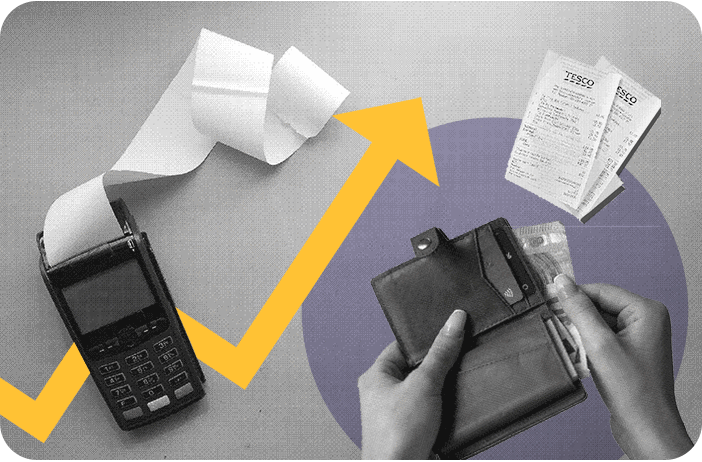
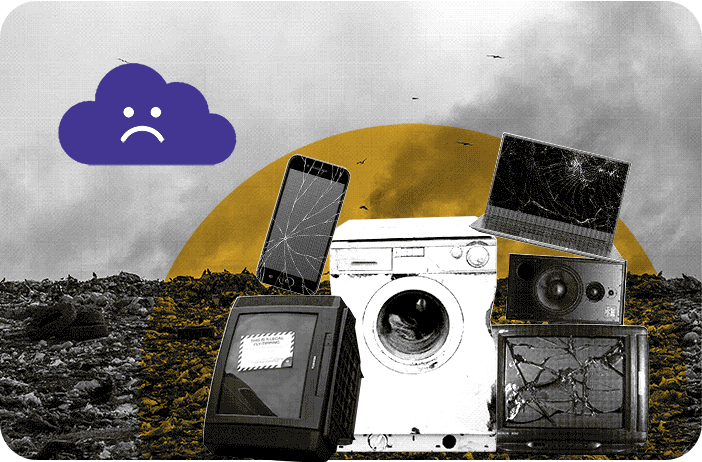
🌍 Borrowing is better for our planet
Each time we buy a new tool or gadget, we’re part of a system that extracts natural materials and intensively releases carbon emissions to manufacture and ship them. The UK is the second biggest producer of electrical waste in the world, and still buys 1.7 million brand new electrical products each year!
By borrowing, renting or sharing products instead of buying new ones, we can protect our fragile ecosystems and help keep the fossil fuels in the ground. Here’s to more of that.
WHY DO WE CARE? 💜
Buying stuff from Amazon or Argos is convenient – but consumerism isn’t working for us, our purses or our planet.

💸 Borrowing is better for our purse
The cost-of-living crisis means many of us are trying to save money and reduce non-essential spending.
We can all save money by affordably renting quality products instead of buying them – whether drills, sound systems or sewing machines.

🌍 Borrowing is better for our planet
Each time we buy a new tool or gadget, we’re part of a system that extracts natural materials and intensively releases carbon emissions to manufacture and ship them. The UK is the second biggest producer of electrical waste in the world, and still buys 1.7 million brand new electrical products each year!
By borrowing, renting or sharing products instead of buying new ones, we can protect our fragile ecosystems and help keep the fossil fuels in the ground. Here’s to more of that.
OUR IMPACT ⚡
By borrowing rather than buying from Library of Things, our members tell us
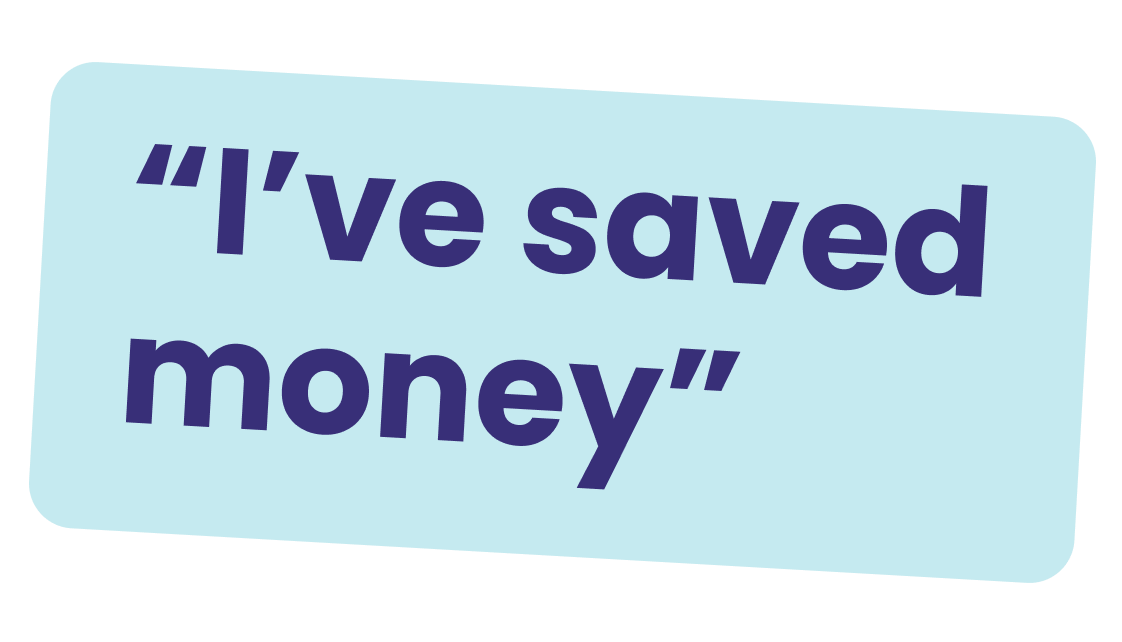
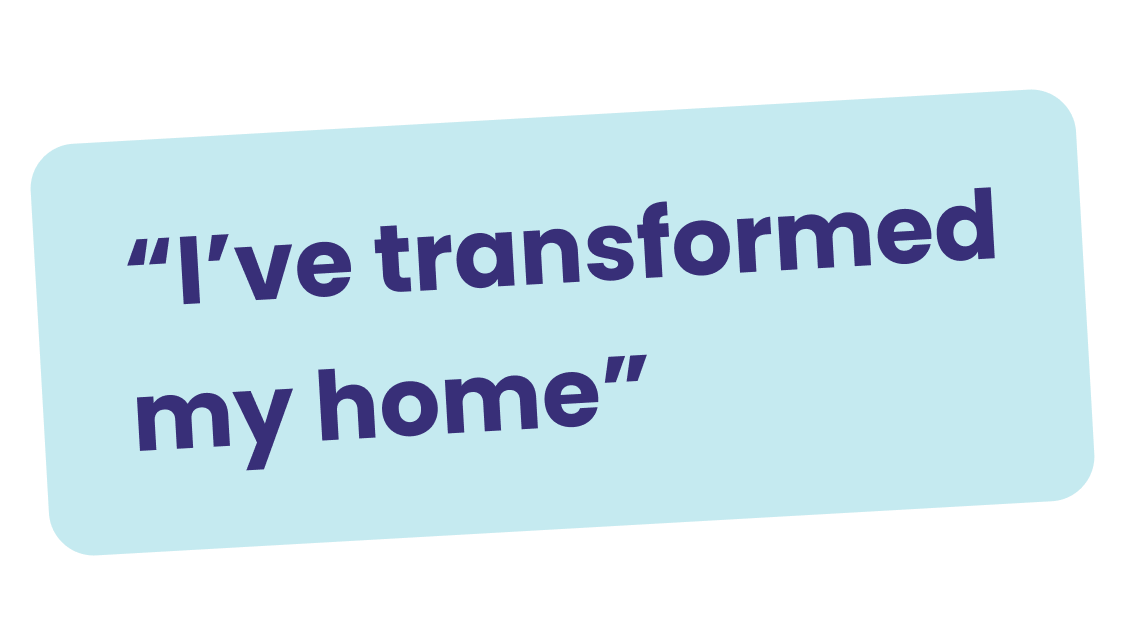
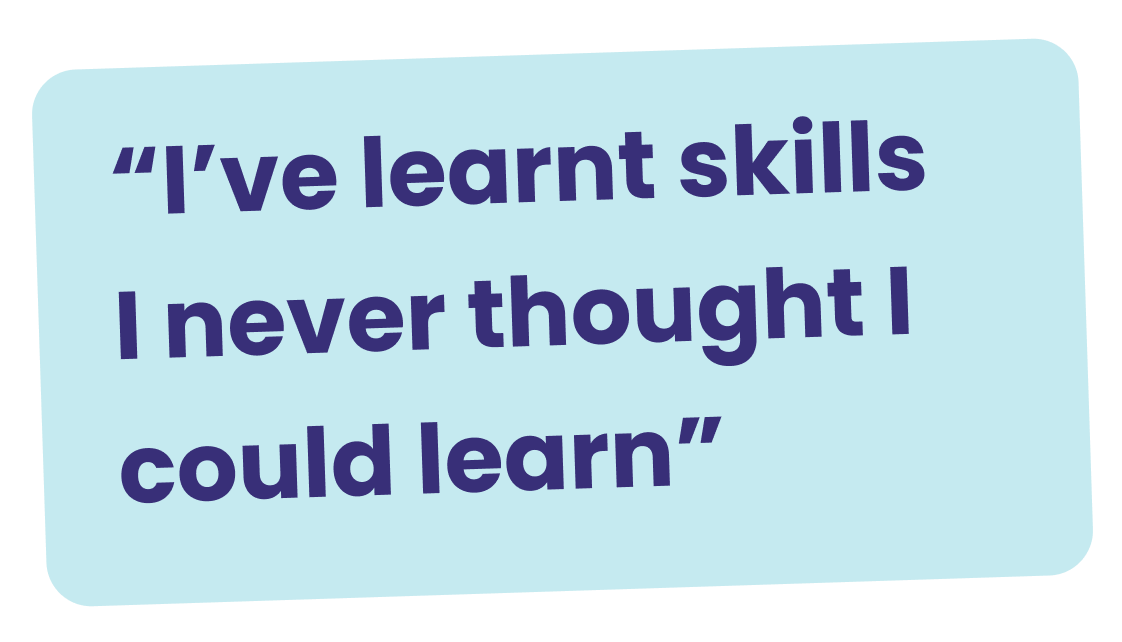
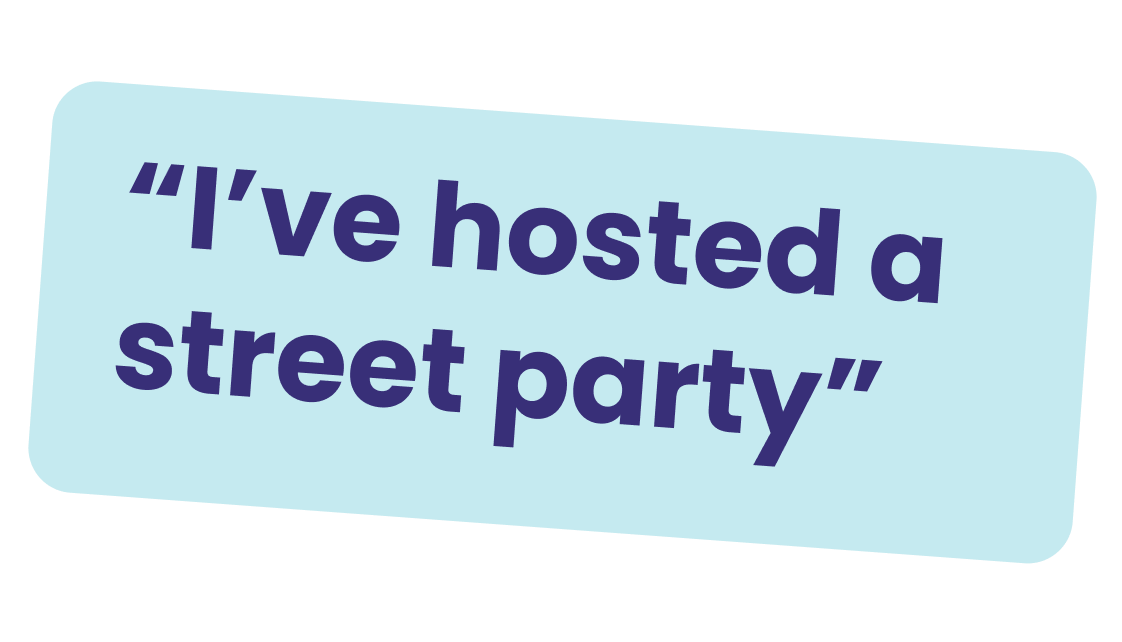
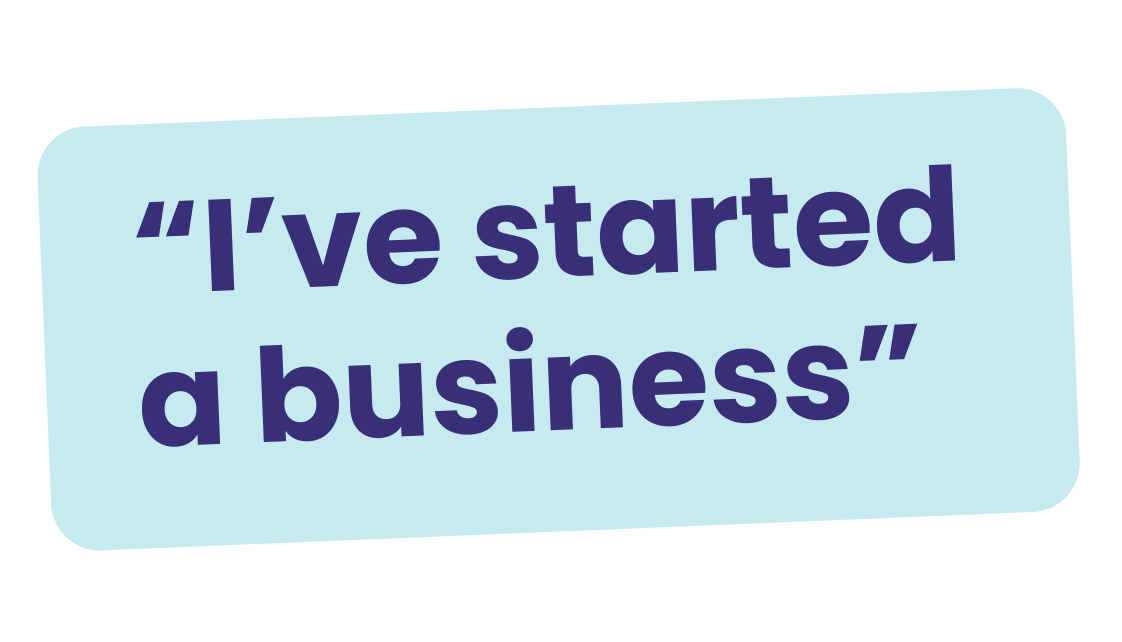
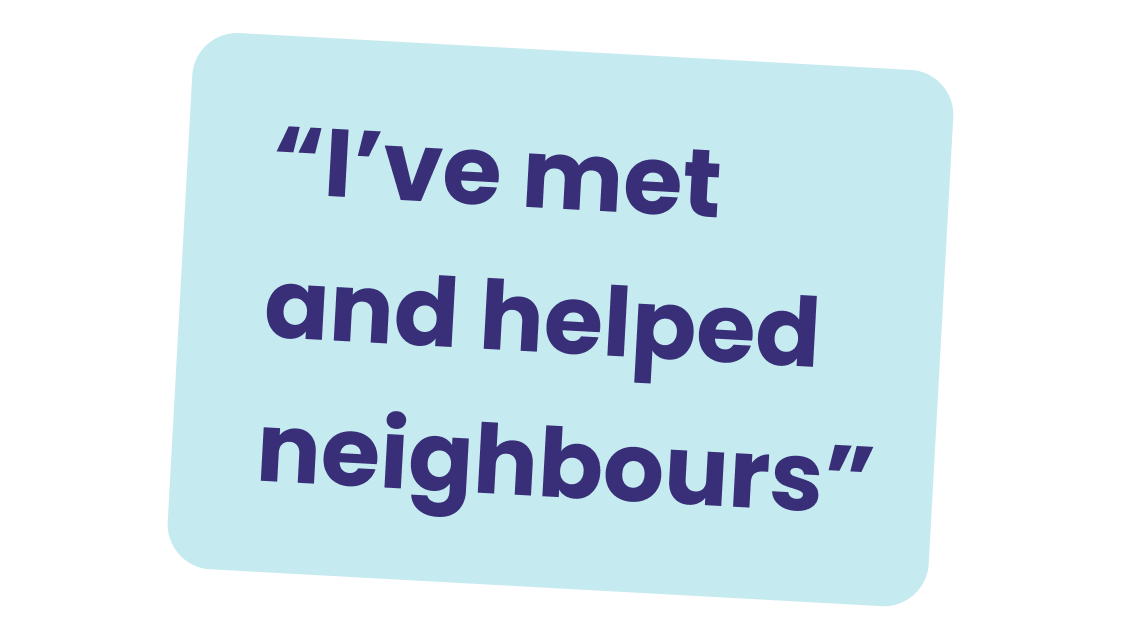
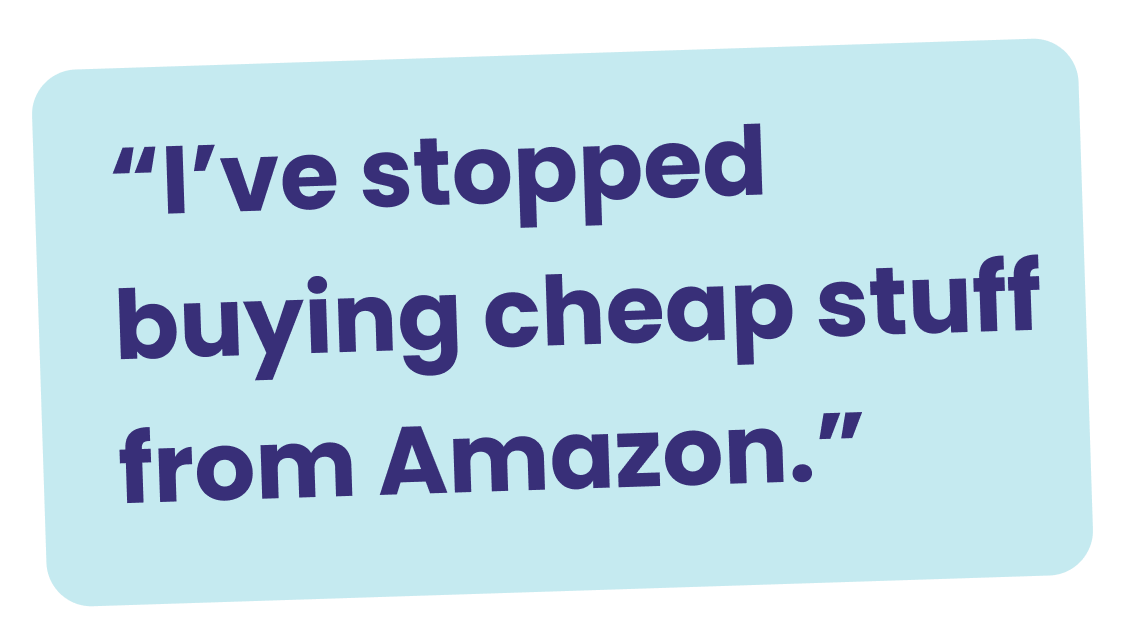
Read our latest impact report and our methodology
Figures correct up till September 2025 (updated every quarter)
OUR IMPACT ⚡
By borrowing rather than buying from Library of Things, our members tell us






18,000+
👋 members
31,000+
🛠️ affordable rentals
£4.5million+
👛 saved by residents
OUR STORY SO FAR
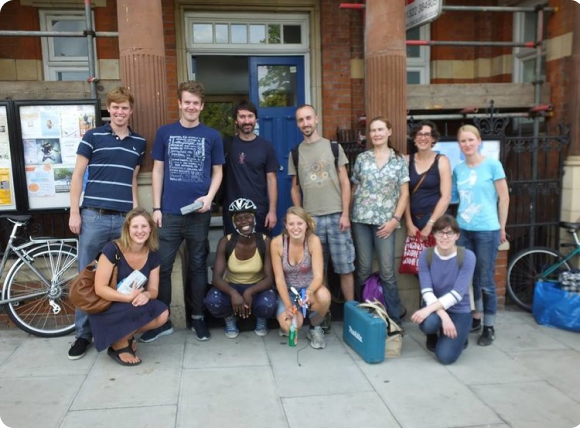
2014: The shoestring experiment
With a group of friends & neighbours, we ran a 3-month experiment in West Norwood library, as part of an incubator for participatory neighbourhoods. Would people borrow Things rather than buy and waste them?
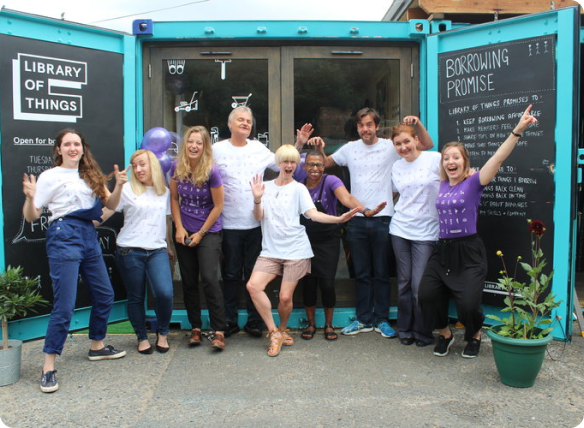
2016: The shipping container testbed
Emma, Sophia and Bex crowdfunded £15,000 from 250 local people, bought two shipping containers, and trialled 400 different items with 1,000 people – to identify the items best for borrowing.
Hundreds of requests flooded in from around the world – “Help us start a Library of Things in our library / housing block / shopping centre / reuse hub!”
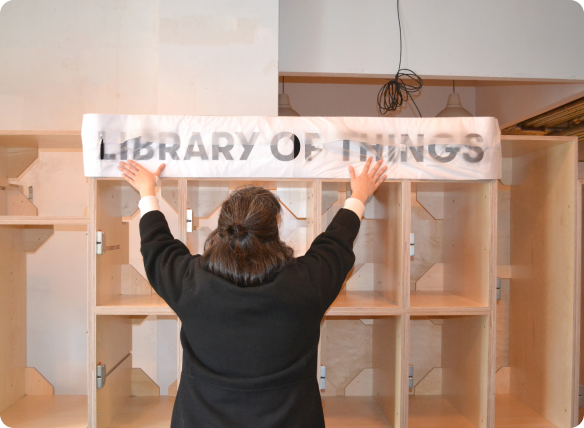
2018: A UK-wide network
By 2018, we’d inspired dozens of lending libraries to emerge around the UK. We brought many of them together to share knowledge and resources, and made a shared ‘manifesto’ to guide the movement.
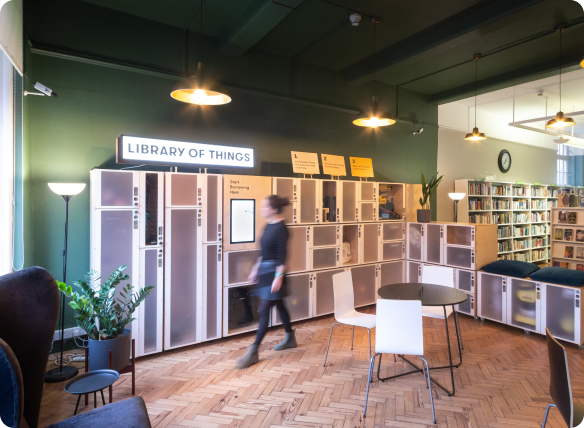
So that Library of Things could live anywhere, we developed a version that could ‘plug in’ to shared spaces like libraries, shopping centres and housing blocks. We developed our own software, self-serve lockers, circular supply chain, local marketing model and impact calculators. We partnered with Upper Norwood Library Hub and Crystal Palace Transition Town and launched Crystal Palace Library of Things. It took off!
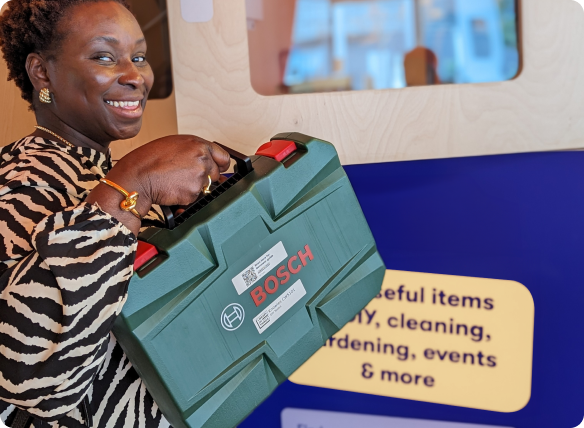
2020-2023: Getting London sharing
Despite a pause for the Covid pandemic, we launched Library of Things in 15 neighbourhoods across London – in partnership with many brilliant councils, asset owners, product manufacturers and local sustainability networks.
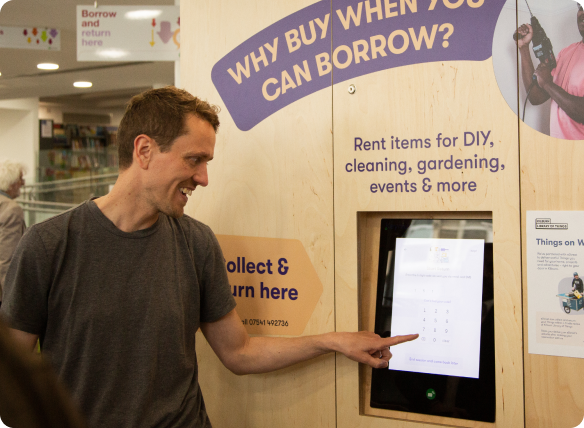
2023 & beyond
We’re continuing to grow the Library of Things network to more neighbourhoods around the UK and beyond. We’re making our technology and expertise available to others – whether councils, retailers, housing providers or community businesses.
OUR STORY SO FAR

2014: The shoestring experiment
With a group of friends & neighbours, we ran a 3-month experiment in West Norwood library, as part of an incubator for participatory neighbourhoods. Would people borrow Things rather than buy and waste them?

2016: The shipping container testbed
Emma, Sophia and Bex crowdfunded £15,000 from 250 local people, bought two shipping containers, and trialled 400 different items with 1,000 people – to identify the items best for borrowing.
Hundreds of requests flooded in from around the world – “Help us start a Library of Things in our library / housing block / shopping centre / reuse hub!”

2018: A UK-wide network
By 2018, we’d inspired dozens of lending libraries to emerge around the UK. We brought many of them together to share knowledge and resources, and made a shared ‘manifesto’ to guide the movement.

So that Library of Things could live anywhere, we developed a version that could ‘plug in’ to shared spaces like libraries, shopping centres and housing blocks. We developed our own software, self-serve lockers, circular supply chain, local marketing model and impact calculators. We partnered with Upper Norwood Library Hub and Crystal Palace Transition Town and launched Crystal Palace Library of Things. It took off!

2020-2023: Getting London sharing
Despite a pause for the Covid pandemic, we launched Library of Things in 15 neighbourhoods across London – in partnership with many brilliant councils, asset owners, product manufacturers and local sustainability networks.

2023 & beyond
We’re continuing to grow the Library of Things network to more neighbourhoods around the UK and beyond. We’re making our technology and expertise available to others – whether councils, retailers, housing providers or community businesses.
OUR MISSION LOCK 🔒
We’re building a business that’s fairer for people and planet. We’re democratising who owns our stuff AND who owns our company.
Library of Things is a mission-locked and ‘steward-owned’ business. This means:
1. Our directors and impact investors are legally-bound (by our founding documents) to put our mission first in strategic decision-making
2. We have ‘Mission Guardians’ who listen to and speak for our key stakeholders – our borrowers, partners, impact investors and the planet – to hold us accountable to our mission and values long-term
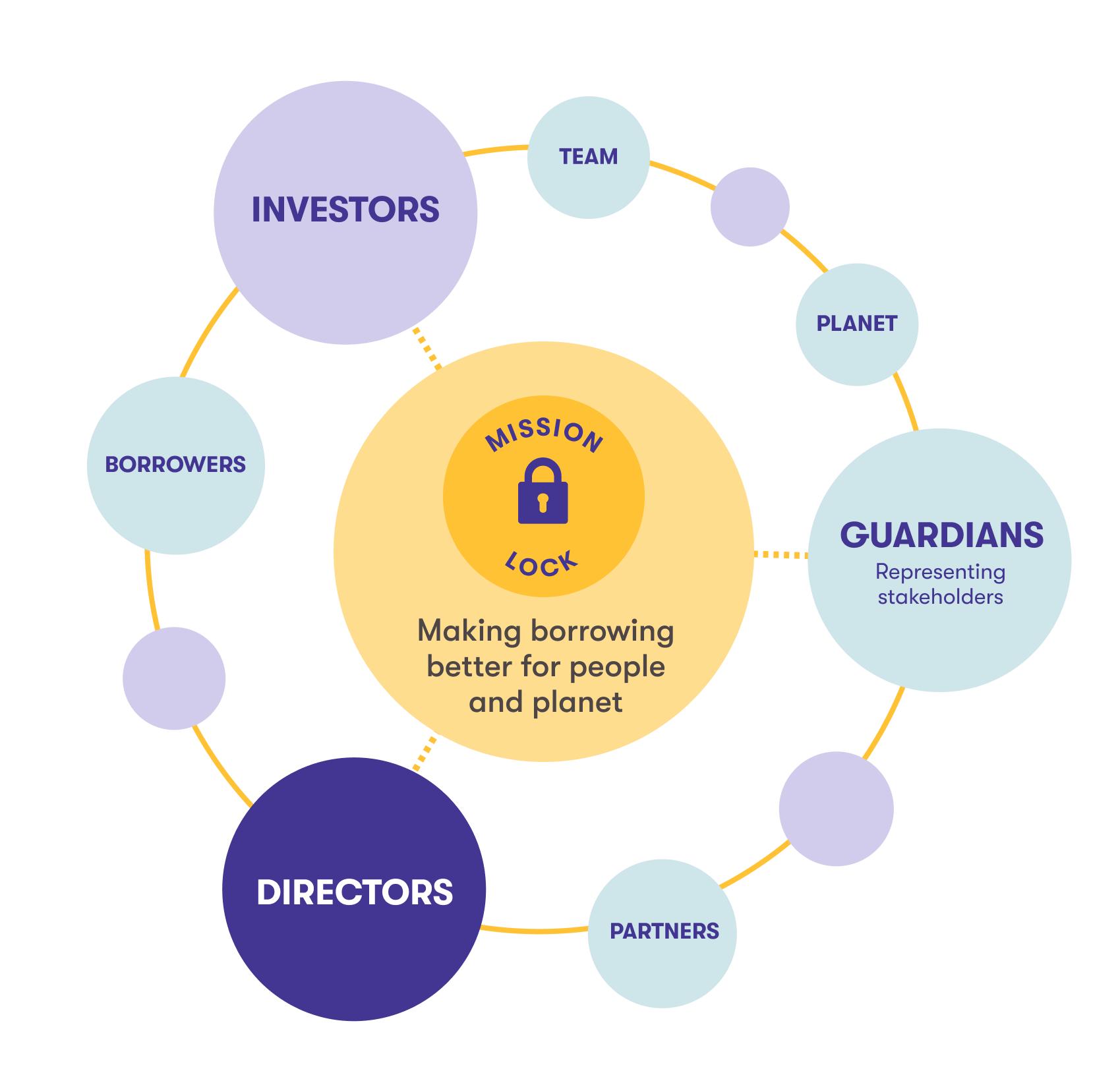
OUR MISSION LOCK 🔒
We’re building a business that’s fairer for people and planet. We’re democratising who owns our stuff AND who owns our company.
Library of Things is a mission-locked and ‘steward-owned’ business. This means:
1. Our directors and impact investors are legally-bound (by our founding documents) to put our mission first in strategic decision-making
2. We have ‘Mission Guardians’ who listen to and speak for our key stakeholders – our borrowers, partners, impact investors and the planet – to hold us accountable to our mission and values long-term

